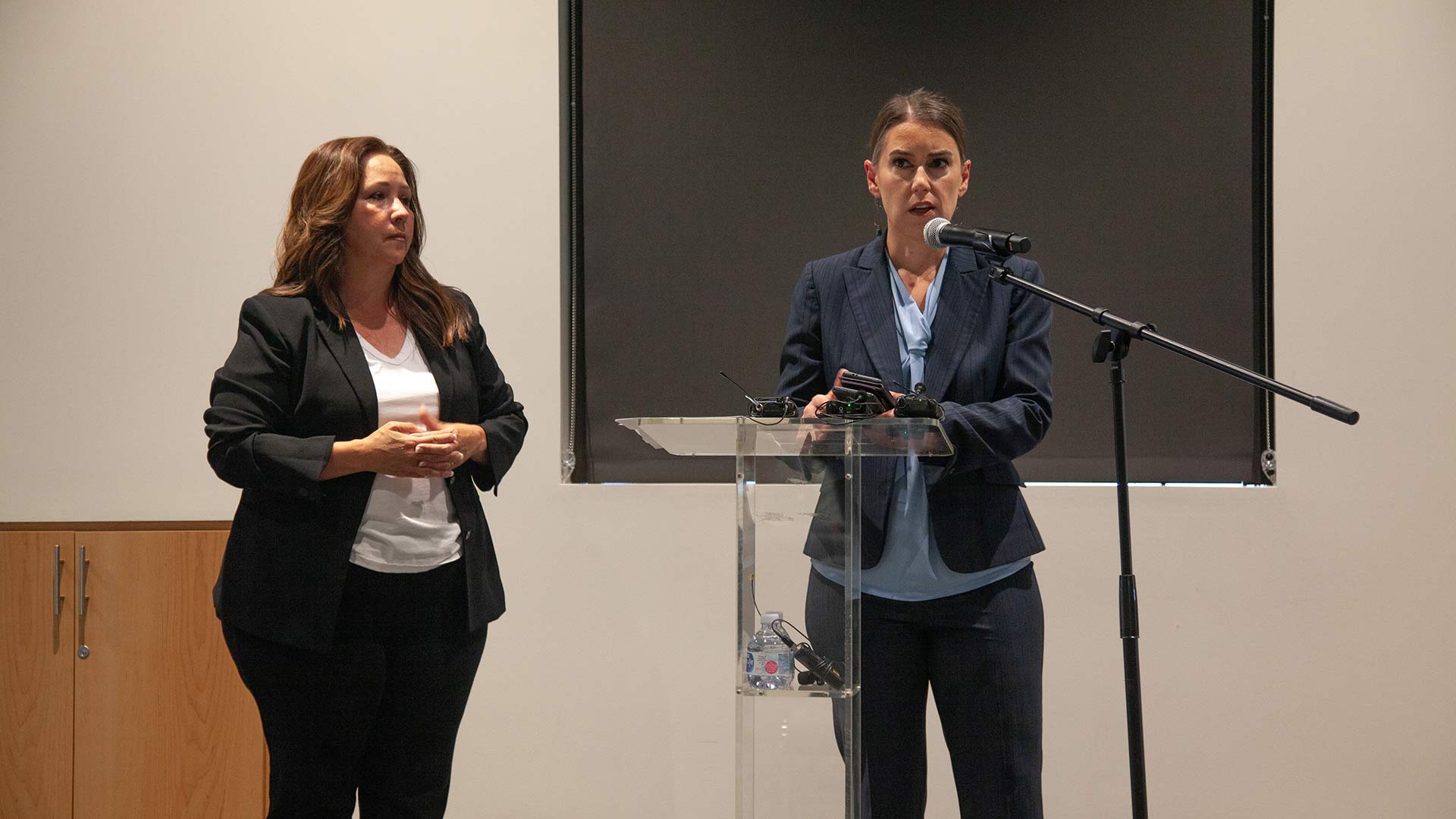 Adelita Grijalva, Pima County Board of Supervisors Chair and Laura Conover, Pima County District Attorney and the Pima County Historic Courthouse in Tucson, Ariz., on Tuesday, July 2. Grijalva and Conover held a press conference to talk about how Pima County would address the Supreme Court's recent ruling in Grants Pass v. Johnson, which allows communities to fine and arrest houseless people for sleeping in public.
Adelita Grijalva, Pima County Board of Supervisors Chair and Laura Conover, Pima County District Attorney and the Pima County Historic Courthouse in Tucson, Ariz., on Tuesday, July 2. Grijalva and Conover held a press conference to talk about how Pima County would address the Supreme Court's recent ruling in Grants Pass v. Johnson, which allows communities to fine and arrest houseless people for sleeping in public.
In response to Friday’s Supreme Court ruling in Grants Pass v. Johnson, which allows cities to ban unhoused people from sleeping in public spaces, Pima County Attorney Laura Conover has stated that arrests are not the solution to a larger issue.
At a Tuesday press conference, Conover reminded the public of her office’s prosecutorial mission.
“To create the healthiest and safest environment possible,” Conover said. “Spreading fear through very vulnerable communities about getting arrested for falling asleep is the last thing we want to be doing.”
Conover highlighted the shortage of shelter beds for the local homeless population,currently estimated at over 1,200 people.
That number fluctuates, said Pima County Board of Supervisors Chair, Adelita Grijalva.
“But we don’t know where they are as far as needing resources,” Grijalva added, noting that the county cannot arrest its way out of the problem its community members are facing.
Jennifer Darland, director of the office of housing opportunities and home solutions said the county is about 800 beds short.
“But that fluctuates on a nightly basis,” Darland said.
District 5 supervisor Grijalva emphasized that long-term solutions to the homeless crisis begin with investments in policies that prevent homelessness, to increase housing affordability and seeking alternatives to incarceration.
“The Supreme Court’s ruling will not affect our efforts to continue seeking humane and just ways to work with individuals facing this issue,” Grijalva said.

By submitting your comments, you hereby give AZPM the right to post your comments and potentially use them in any other form of media operated by this institution.